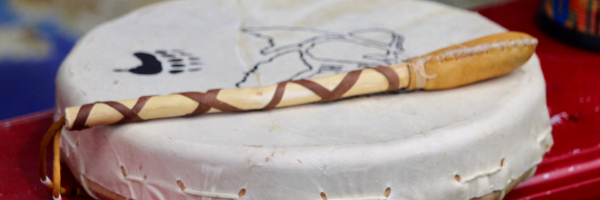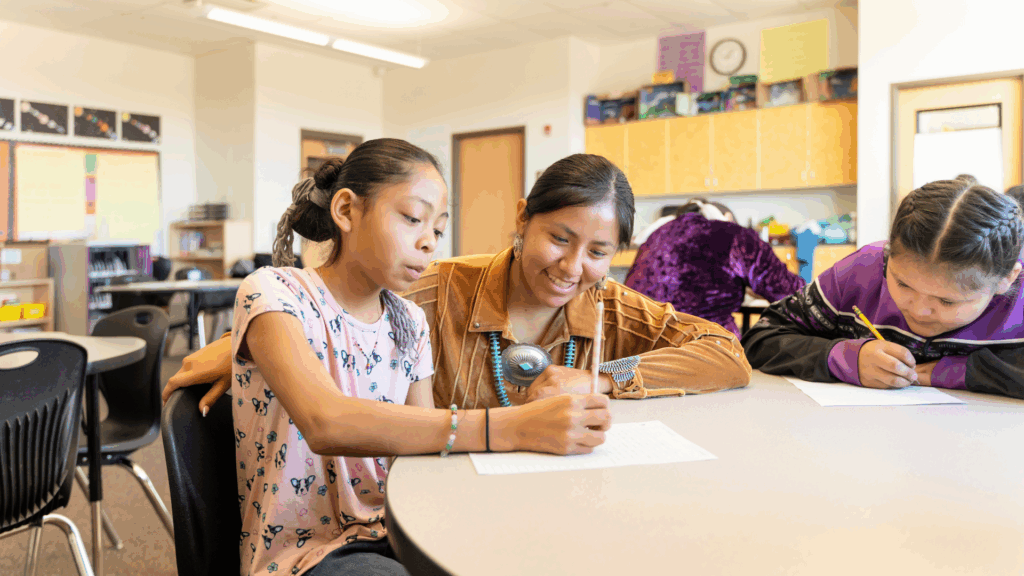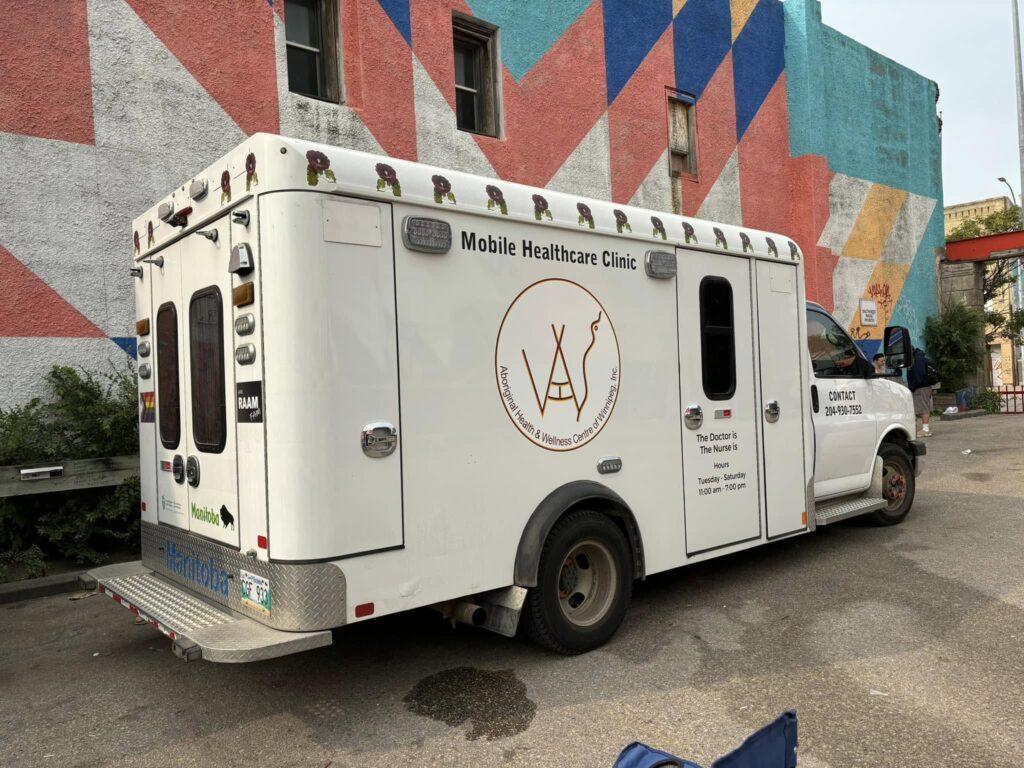
Honouring National Indigenous History Month:
Supporting Culturally Safe Care at the Aboriginal Health and Wellness Centre
Indigenous Peoples’ stories, achievements, and enduring resilience continue to shape the fabric of our nation.
June is National Indigenous History Month in Canada, a time to honour the cultures, traditions, and experiences of First Nations, Inuit, and Métis Peoples.
It is also a time to reflect on and condemn Canada’s colonial past, including the many ways our health-care system failed, and continues to fail, Indigenous People. Historical actions driven by systemic racism – such as forced medical experimentation, coerced sterilization, and the denial of traditional medicines – have caused lasting harm, with effects that span generations and continue to create barriers to care, services, and resources today.
Racism, dismissal of concerns, and the denial of cultural protocols are still far too common.
A crucial step toward healing is through the delivery of culturally appropriate and safe care, guided by respect, compassion, and Indigenous ways of knowing. This is the work being done every day by MAHCP members at the Aboriginal Health and Wellness Centre (AHWC), Manitoba’s only Indigenous-led community health agency serving urban Indigenous People of all ages.
Through a wraparound model of care, AHWC blends traditional healing practices with Western medicine to create a space where clients feel heard, seen, and supported. This approach aligns with Call to Action #22 from the Truth and Reconciliation Commission of Canada:
“We call upon those who can effect change within the Canadian health-care system to recognize the value of Aboriginal healing practices and use them in the treatment of Aboriginal patients in collaboration with Aboriginal healers and Elders where requested.”
AHWC’s mission is grounded in an Indigenous worldview, honouring the medicine wheel teachings and the interconnectedness of all people and all things. This worldview shapes every part of their approach to care, from primary health services and traditional healing, to advocacy and partnerships that remove systemic barriers and provide community support.
MAHCP members working at AHWC embody these values – offering care that is not only clinically excellent, but also culturally rooted. They work in collaboration with Elders, Knowledge Keepers, and community organizations to empower clients, heal trauma, and advocate against systemic barriers.
Their work is more than health care. It’s reconciliation in action.
Reconciliation is founded in action. In transforming systems, confronting racism, and supporting Indigenous-led health initiatives. As we reflect on Indigenous History Month, MAHCP acknowledges and celebrates the vital work of allied health professionals who are helping to build a more culturally inclusive, respectful, and safe health care system.
When we centre Indigenous voices and values in health care, everyone benefits.
Culturally appropriate care has a transformative impact, helping Indigenous People feel respected, more likely to seek care, and more open to discussing sensitive or traumatic experiences.
In a national survey conducted in 2024:
- The majority of First Nations people living off reserve (86%), Métis (70%) and Inuit (82%) reported that it was very or somewhat important to have health care services that support Indigenous traditional medicines, healing, and wellness practices.
Of those who stated that culturally appropriate services were important:
- Almost two-thirds of First Nations people living off reserve (68%), Inuit (67%) and Métis (61%) reported such services would generate for them feelings of respect for their culture, beliefs, and identity.
- Roughly half of First Nations people living off reserve (49%) and Inuit (50%) reported that such services would make them more likely to seek health care.
- About half of Inuit (48%), 41% of First Nations people living off reserve and 32% of Métis reported that these services would help them feel safer discussing sensitive or traumatic experiences.

Programs and Services at AHWC
Approximately 50 MAHCP members support health-care services and programs rooted in traditional healing, wellness, and wraparound care. Read more about AHWC’s programs below.
Abinotci–Mino Ayawin (Children’s Healing)
This voluntary home visiting program supports Indigenous families in Winnipeg who are expecting a child or have children under the age of six at home.
Continue reading
Focusing on health-care needs of children and their families, this program promotes the healthy development of young children facing challenges like poverty, isolation, substance use, and family violence.
Services include:
- Home visits and one-on-one support
- Advocacy and goal-setting
- Access to traditional resources
- Referrals to Indigenous organizations
- Support with child custody, housing, income, safety, family planning
Mino-Pimatiziiwin – Men’s Healthy Living Program
This program supports Indigenous men in Winnipeg (age 18+) who want to make positive lifestyle changes, strengthen their roles within their families, and be leaders in their communities.
Continue reading
MHLP provides a variety of services, such as advocacy, support, counselling, as well as access to a Cultural Advisor, resources, and community services.
Indian Residential School – Resolution Health Support Program
This program offers emotional, cultural, and mental health support to former Indian Residential School and Indian Day School students and their families.
Continue reading
Supports include:
- Mental health counselling
- Emotional and cultural support
- Transportation to appointments with Traditional Healers
- Referrals to Health Canada-funded services and community resources
Head Start Program
Head Start supports healthy development for First Nations, Métis, and Inuit children (ages 3–5) living in Winnipeg’s core areas.
Continue reading
The program includes cultural learning, nutrition, health promotion, and early education through fun, hands-on activities.
Key areas of focus:
- Foster the spiritual, emotional, intellectual, and physical growth of each child.
- Nurture the role of parents and guardians as primary teachers and caregivers.
- Recognize the role of the extended family in teaching and caring for children, and ensure involvement from the broader Indigenous community.
- Establishing linkages to other community programs and services.
Ni-Apin Program – Housing First Support
Ni-Apin, meaning “I am sitting at home” in Cree, provides Housing First services to urban Indigenous individuals (age 18+) in Winnipeg who are experiencing or at risk of homelessness – especially those facing barriers like mental health challenges or addictions.
Continue reading
Using a harm reduction, trauma-informed, and culturally grounded approach, Ni-Apin helps participants find permanent housing and build toward a healthier, more stable life.
Highlights
- Individualized case plans and home visits
- Housing search and advocacy support
- One-on-one counselling and referrals
- Cultural supports (Elder guidance, sharing and teaching circles)
- Food security and access to primary care
- Drop-in space with crafts, cultural activities, computers, and social connection
InSight Mentoring Program
InSight is a voluntary, three-year outreach program for Indigenous women in Winnipeg who are pregnant or have a baby under 12 months old, and who are living with addiction or other complex life challenges.
Continue reading
Mentors offer intensive, one-on-one support, helping participants connect to community resources, set personal goals, and care for themselves and their babies.
Supports include:
- Referrals to addiction and health services
- Help with prenatal, infant care, and family planning
- Support around child custody, housing, and income
- Advocacy and goal-setting assistance

Primary Care & Mobile Clinics
Primary Care Clinic
The AHWC Primary Care Clinic provides holistic, culturally safe health care for Winnipeg’s urban Indigenous community. Grounded in traditional and contemporary healing, care is delivered with compassion, respect, and a trauma-informed, harm-reduction approach.
Care team includes: physicians, nurses, dietitian, foot care nurse, cultural advisor, social support counsellor, and community health workers.
Continue reading
Traditional Healing
A Cultural Advisor is available to meet with constituents for advice and counselling related to traditional and spiritual healing. The Cultural Advisor provides holistic care in areas of ceremonies, spiritual advice, and counselling. They also act to connect constituents to other traditional healers as needed.
Primary Care
Primary Care services are offered with a holistic approach, following the Medicine Wheel, to address constituents’ physical, mental, spiritual, and emotional wellbeing.
Health Community Care
Community Health Workers and nursing staff operate outreach programming that focuses on promoting health and wellness, and preventing disease.
Mobile Healthcare and Wellness Clinic
The Mobile Clinic brings a multi-disciplinary health-care team directly to individuals facing barriers to care, many of whom are experiencing homelessness or living in deep poverty.
Care team includes: physician, nurse, crisis counsellor, PEERS, Indigenous social planner, medical office assistant, director of mobile health-care clinic.
Continue reading
The Mobile Clinic visits encampments, shelters, and high-need areas to provide immediate and ongoing care, such as primary health services, counselling, and harm reduction supports. They also help connect people to broader community services and long-term care.
Services offered:
- Wound care and treatment for minor injuries
- STBBI testing and treatment, limited lab services
- Prescription renewal and regular check-ups
- Health promotion and education
- Mental health counselling and resourcing
- Referrals to other health specialists
